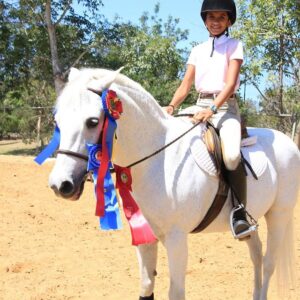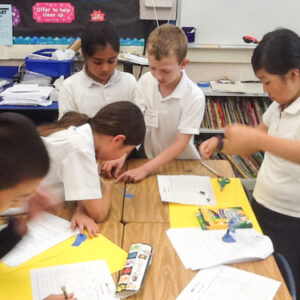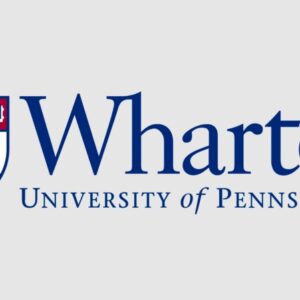By Janet Rae-Dupree
The Harker Venture Investment Strategic Ecosystem was in full swing on April 18 as students from the school’s business and entrepreneurship programs came together to host the National Youth Qualifier of the world’s largest startup competition, the Startup World Cup.
Seven founding teams from the Bay Area and Texas competed for $1,000 and the chance to pitch alongside 2,500 international participants vying for a $1 million investment at the World Cup Grand Finale in October.
Organized by Pegasus Tech Ventures as one of more than 100 global qualifying events, the Harker youth qualifier is the only event open exclusively to high school students. Harker hosted the first youth qualifier in September 2024 but moved the second event to the spring to give winning teams more time to prepare for the grand finale.
“With the World Cup Youth Qualifier, we’re seeing a whole new facet to our diamond of business and entrepreneurship here at Harker,” said head of school Brian Yager. “It’s not just the kids on the stage pitching their companies. It’s a whole network of students working with alumni, parents and teachers to learn about venture investment, financing, marketing and every aspect of business. It’s amazing that this exists at a high school.”
The pitch competition wasn’t the only entrepreneurial event that took place on April 18. Prior to the evening qualifier, the 12th annual BEcon — led by business and entrepreneurship students — hosted a series of workshops about product management, career paths, looking within the Harker network for a mentor and how to get involved in venture capital and private investment.
That last workshop featured an overview of the Mehta Scholars program, named after Neil Mehta ‘02, a member of Harker’s first upper school graduating class. The founder and managing director of Greenoaks Capital Partners, Mehta established the $10 million Mehta Endowment for Scholarship and Entrepreneurship, which primarily helps fund the school’s financial aid program and provides funding to The Harker Venture Pool and the Mehta Scholars Program, where advanced-level business and entrepreneurship students serve as analysts to the Venture Pool and make early-stage investments primarily in startups founded by Harker alumni.
“Our Mehta Scholars identify and analyze companies of interest that have secured at least $1 million from a venture capital fund so that we know they have been professionally vetted, too,” explained Joe Rosenthal, director of strategic initiatives, who has traveled to Taipei, Tokyo, Hong Kong and New York to engage alumni and parents and promote the program. “We’ve invested in three companies so far, and the students are analyzing several other potential investments.”
An unnamed company of particular interest was created by a Harker alum in Taipei. The three professional advisors working with the Mehta Scholars to bring it into the Harker fold are so impressed that too want to invest in the company alongside the scholars.
“I really believe in entrepreneurship education as both a tool for supporting students in their professional lives with technical and soft-skill building and also as a personal development tool to gain confidence, look at things in a cross-disciplinary way, test a hypothesis, pivot and keep going,” said Michael Acheatel, a Harker business and entrepreneurship teacher. “School is rarely this trial-and-error. Traditional learning involves getting to the right answer. But this lets you build the plane as you fly.”
The evening’s activities centered around the seven student companies hoping to take their ventures to the next step.
During a panel moderated by seniors and current Mehta Scholars Saahira Dayal and Andy Chung, three seasoned entrepreneurs urged the assembled students to stay focused on their passions and values as they enter the start-up arena.
“Nothing is set in stone. Define your own path to success,” advised Univfy CEO and co-founder Dr. Mylene Yao. “Don’t let other people define it for you.”
Each team was given four minutes to present their company to a panel of four judges — John Kwan, a managing director at Samsung; Alex Rampell, a general partner at Andreessen Horowitz; Alexa Zhang, a managing director at Platanus; and Gautam Krishnamurthi ’11, general partner at Greatpoint Ventures. After each presentation, judges had two minutes to question the students about their companies.
As judges finished their assessments following the presentations, DoorDash co-founder Andy Fang ‘10, talked about how he and his fellow co-founders made the first few hundred DoorDash deliveries themselves because “we had a ton of trouble raising money.”
“We definitely would have failed if we’d entered this competition,” he joked. “But I can tell you this: If it doesn’t feel like the wheels are about to fall off, you’re not going fast enough. If they do fall off, clean up the mess and keep going.”
In the end, three teams were selected to go to San Francisco in October to pitch at the Grand Finale. First place went to TikTok-style study app Cookr, which took home the $1,000 top prize. Second place was awarded to Visibill, a “transparent politics” voter education tool. And third place went to Beyond the Bars, an app to help ex-convicts access essential resources to reduce recidivism.
All of the presentations were impressive, Yager said. And he isn’t the only one to think so.
“I was talking with an investor recently who told me he likes to see founders from certain academic backgrounds,” he said. “Stanford undergrad is great and Stanford Business School is even better. But he said the best is to find a founder who went to Harker.”
Janet Rae-Dupree is a science and technology writer based in the San Francisco Bay Area.
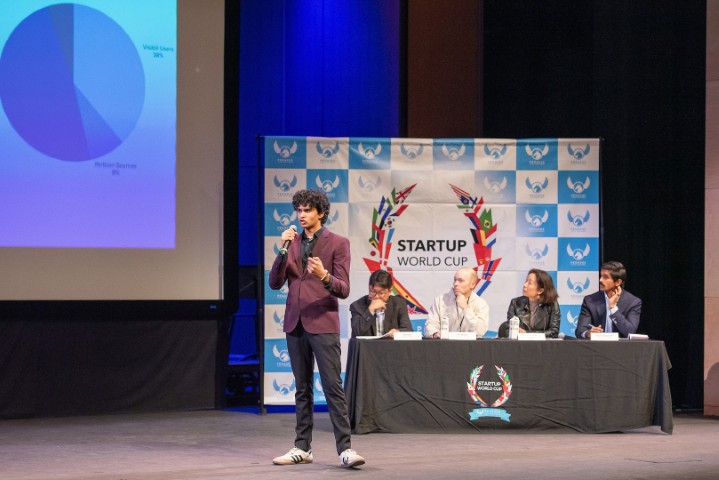


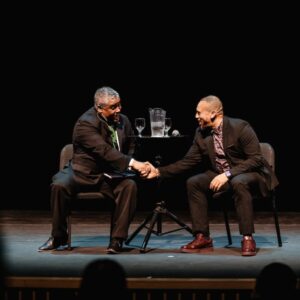

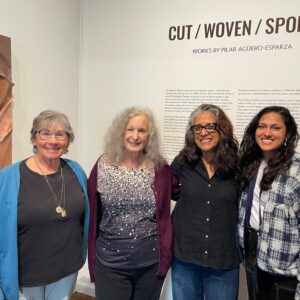
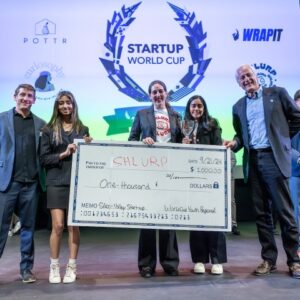

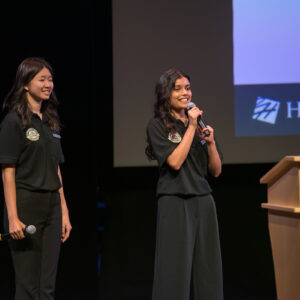
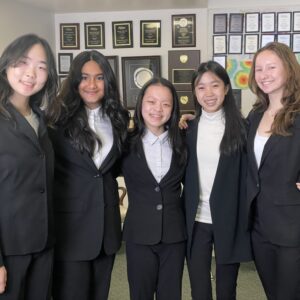
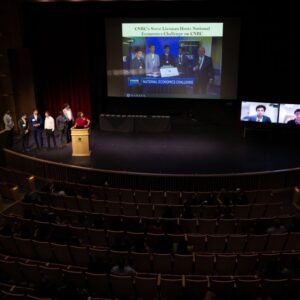
![[Updated] Harker team reaches Wharton Investment Competition finals Optimized by JPEGmini 3.18.16.230335665-TBTBLNP 0x88155d6d](https://news.harker.org/wp-content/uploads/2023/02/Wharton_Investment_team-300x300.jpg)
